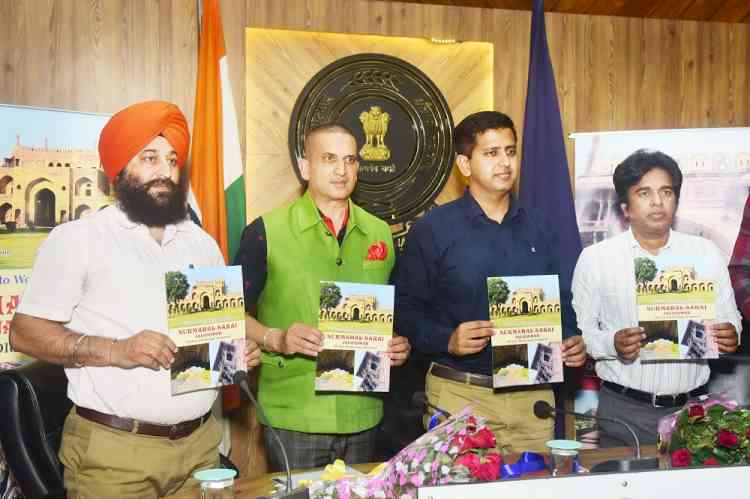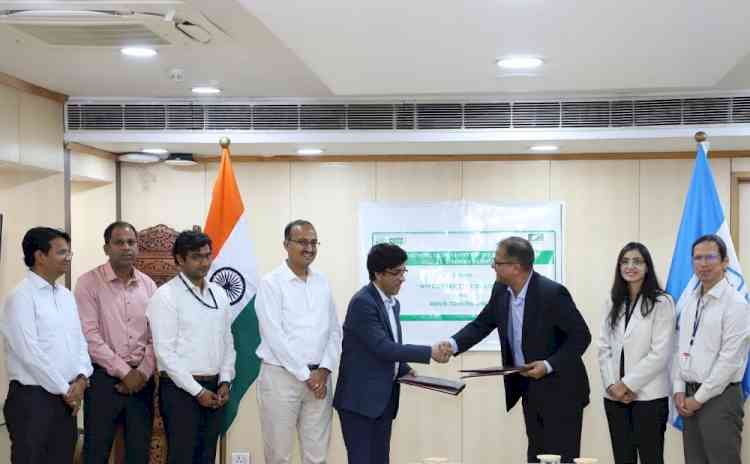Punjab Energy Conservation Building Code Approved By Punjab Cabinet
Author(s): City Air NewsThe Government of India enacted the Energy Conservation Act in 2001 to promote the concept of energy conservation. It was amended in 2010. Bureau of Energy Efficiency (BEE) was established under the Act to develop...

The Government of India enacted the Energy Conservation Act in 2001 to promote the concept of energy conservation. It was amended in 2010. Bureau of Energy Efficiency (BEE) was established under the Act to develop polices to reduce energy consumption in country and coordinate with various stake holders. Punjab Energy Development Agency (PEDA) was established to coordinate, regulate and enforce Energy Conservation Building Code (ECBC).
The ECBC sets minimum energy performance standards for buildings and covers building envelope, heating ventilation and air conditioning, hot water systems, interior and exterior lighting, electrical power and motors including thermal comfort in non centrally air conditioned/heated buildings.
The states can amend ECBC to suit their local and regional climatic conditions and requirements. PEDA has taken the initiative to amend ECBC. The work was assigned to a team led by architects Surinder Bahga and Archana Chaudhary of Indian Institute of Architects and a technical committee was constituted of the following departments of state government:-
1. Chief Architect, Punjab,
2. Housing & Urban Development (Town Planning),
3. PWD (Civil, Electrical, PH),
4. Local Govt. (TP),
5. PSPCL and
6. Director, PEDA. After having detailed deliberations in various meetings, final draft was put up to Punjab Government for approval. Following are salient features:-
a) Buildings are major consumers of energy, 52% energy is consumed by buildings alone. It has been proposed that Punjab ECBC shall be applicable to buildings with: Connected load of 100 KW or more OR Contract demand of 120 KVA or more OR All buildings with a conditioned floor area of 500 sqm (5,000 sft) more as this shall cover most of the big commercial complexes, institutional buildings, housing complexes in the state of Punjab.
b) Events or Functions: Any event/function/temporary arrangements exceeding the duration of three days shall have to comply with code.
c) New Buildings: In case of mixed use buildings if the connected load of the commercial part qualifies for the applicability of this code then the commercial part of the building need to comply with this code. In case, the project is to be built in phases, then Punjab ECBC shall be applicable on the whole building load in total and not the individual buildings designed later on in phases.
d) Addition/alterations to the Existing Building: Where the addition/alterations are to be made in the existing building and the conditioned floor area exceeds the threshold area then the additions/alternations shall comply with all the provisions of Punjab ECBC. The addition, together with the entire existing building, shall comply with the requirements of this code that would apply to the entire building, as if it were a new building.
When space conditioning is provided by existing systems and equipment, the existing systems and equipment need not comply with this code. However, any new equipment installed must comply with specific requirement applicable to that equipment.
e) Star Labeling and minimum Star Rating: All equipments and materials of type and specification coming under the purview of the star labeling program as notified by BEE shall have minimum three star rating or above or as notified by the State Government. Even the ceiling fans shall comply with the provisions of the clause. In addition, it has also been proposed to have automatic shut off (after 10 minutes) of lighting fixtures in commercial and office buildings while they are not in use.
f) Energy Efficient Air conditioning systems and Motors: It is proposed that energy efficient HVAC systems and motors as specified should be made compulsory to save the energy.
g) Windows and Glass: It is proposed that not more than 40% of the windows should be allowed for the type of climate of the state of Punjab and the Solar Heat Gain Coefficient of the glass to be used should also be less as specified.
h) Lighting Signage/Advertising Signage: Internally-illuminated exit signs shall not exceed 5W preface. They all shall use LEDs. All fluorescent tube lights shall be of T-5 type or BEE. No incandescent bulb shall be used for ordinary lighting star rated applications.
The Punjab ECBC provides multiple options for compliances viz. Prescriptive Compliance for each subsystem and overall system or compliance using Trade-Off between sub systems or whole building level performance based compliance as per the prescribed procedure.

 cityairnews
cityairnews 
















